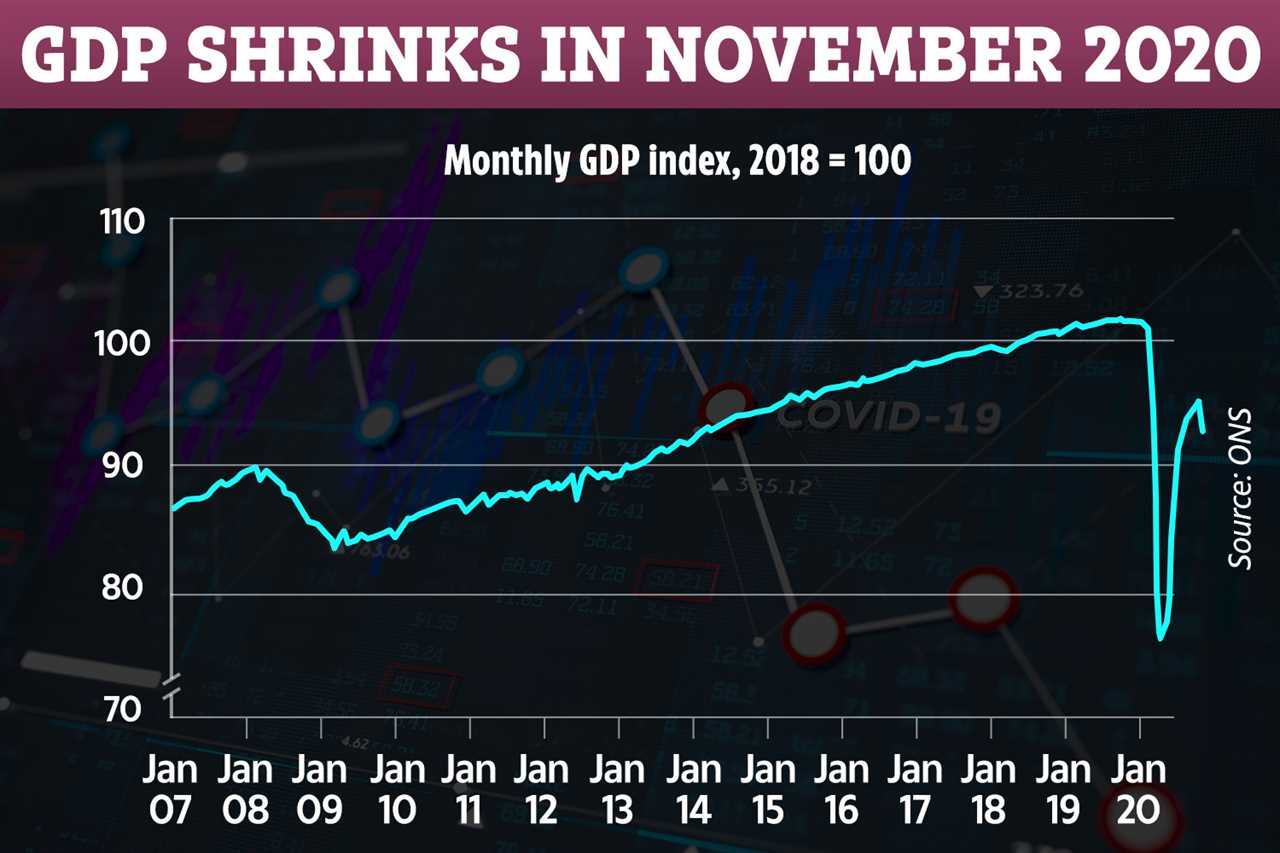THE UK economy shrank by 2.6% in November after England was placed in lockdown for a second time, according to official figures.
But the figures from the Office for National Statistics were better than the 5.6% slump that had been expected.

The pandemic has caused the economy to shrink drastically
November’s decline came after six consecutive months of growth, with a 0.6% improvement in October.
The UK gross domestic product is now 8.5% below its pre-pandemic peak in February 2020.
Experts are warning the UK faces a possible double-dip recession once the true impact of a third national lockdown on the economy is revealed.
A double-dip is recession when the economy shrinks, briefly recovers, and then enters recession again.
Chancellor Rishi Sunak said: “It’s clear things will get harder before they get better and today’s figures highlight the scale of the challenge we face.
“But there are reasons to be hopeful – our vaccine roll-out is well underway and … we’re creating new opportunities for those most in need,” he added.
England entered into a second national lockdown on November 5 to stop a rising cases of coronavirus ahead of Christmas.
The month-long shutdown saw all non-essential retail, including clothes and homeware stores, forced to close.
Pubs and restaurants were limited to offering takeaway and deliveries only.
Schools were allowed to stay open but traders warned of the devastating affect restrictions would have on the busiest trading season of the year.







